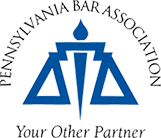A DUI conviction can negatively impact your life for years to come. That is why Pennsylvania residents charged with DUI might seek any alternative the legal system offers to avoid a conviction. One alternative is a diversionary program called Accelerated Rehabilitative Disposition (ARD). If successfully completed, a person may avoid jail time and other possible consequences.
The Pennsylvania General Assembly website provides some background on how this program works. Drivers who qualify enter into a program that seeks to rehabilitate a person charged with DUI instead of sending the person through the court system for a possible conviction and sentencing. A successful completion of the program can result in dismissed charges and an expungement of the case.
Program participants must meet a number of requirements, including the completion of an alcohol highway safety class and if necessary, a counseling or treatment program for alcohol or drug addiction. ARD may also require you to pay fees and restitution to parties harmed as a result of the DUI. ARD participants must also remain under court supervision for a period of time. Some participants may see their driving privileges suspended, perhaps for thirty, sixty, or ninety days.
Failing the ARD program means law enforcement may go ahead and charge you with DUI. A person may fail the program by not completing any of the required steps. Program failure may also occur by breaking the law while in the program or by violating a condition of the court. Knowing what the court and the law requires is essential to avoid ARD failure.
Whether you believe the ARD program is for you is a matter to discuss with a professional defense attorney. Some people prefer to fight DUI charges in court rather than go through ARD. Since the circumstances of DUI cases vary, do not consider this information as legal advice; it is only intended as general information on this topic.



